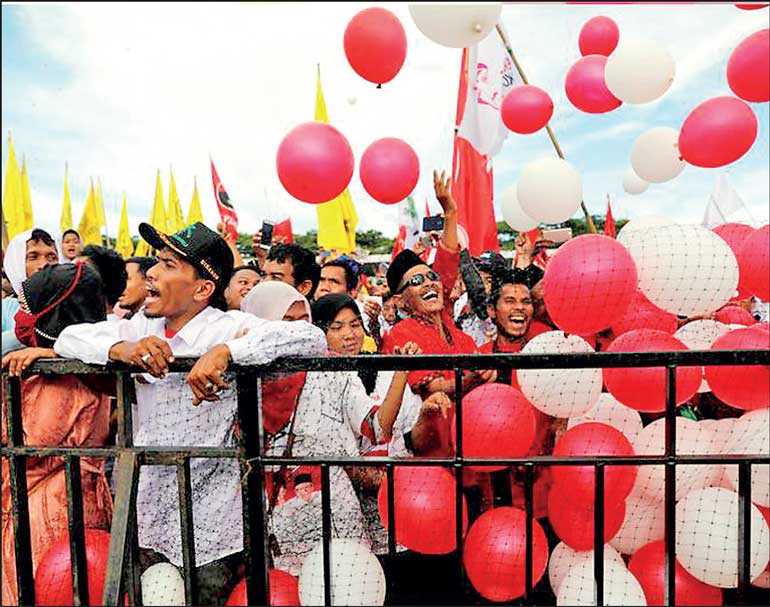Thursday Feb 19, 2026
Thursday Feb 19, 2026
Wednesday, 17 April 2019 00:00 - - {{hitsCtrl.values.hits}}

JAKARTA (Reuters): More than 192 million Indonesians are eligible to vote in presidential and parliamentary elections on Wednesday after campaigns focused on the economy, but with political Islam looming large over the world’s biggest Muslim-majority nation.
President Joko Widodo, a former furniture salesman who launched his political career as a small-city mayor, is standing for re-election in a contest with ex-general Prabowo Subianto, whom he narrowly defeated in 2014.
As conservative Islam gains traction, politicians including Widodo have taken pains to appear more Islamic. The worry for investors is that the appeal for conservative votes will translate into populist policy.
Most opinion polls give Widodo a double-digit lead but the opposition has disputed survey findings. Some recent surveys have shown Prabowo catching up.
The opposition has also said it has uncovered data irregularities affecting millions on the electoral rolls and has vowed to take legal action or use “people power” if its complaints are not resolved.
The election is a huge logistical operation in the world’s third-largest democracy with 245,000 candidates vying for votes in what is described as the world’s biggest single-day election.
Nearly 350,000 police and military personnel, in addition to 1.6 million paramilitary officers, will fan out across the archipelago of 17,000 islands to safeguard the vote.
Polling stations will open at 7 a.m. (2200 GMT on Tuesday) in the east and close at 1 p.m. (0600 GMT) in the west.
Unofficial “quick counts” will be released hours after polling ends and the winning presidential candidate is expected to be apparent by late Wednesday.
The General Election Commission is expected to announce an official result in May.
When Widodo was elected five years ago he offered a break from the military and political elite that had clung to power since the fall of strongman ruler Suharto in 1998.
Now, Widodo, 57, is running on his own record for a second term.
With his easy smile and signature “blusukan”, or impromptu walkabouts, he came to power on a wave of support for a clean, can-do image he cultivated as a small-city mayor, and then as governor of the capital, Jakarta.
Still, during his political rise, Widodo, a moderate Muslim from the city of Solo in Java island, has had to fend off smear campaigns suggesting he was anti-Islam, a communist or in debt to China. On Sunday, he made a pilgrimage to Islam’s holiest site, Mecca in Saudi Arabia.
As president, Widodo was saddled with expectations he could fix a host of problems, from human rights abuses to pervasive graft. Jokowi, as he is popularly known, also inherited an economy coming off a commodities boom, and faced an obstructive parliament.
He stitched together a majority in parliament and while unable to hit an economic growth target of 7 percent, led a push to build ports, roads and airports.
Challenger Prabowo Subianto, 67, has long harboured ambitions for the top job and has cultivated a strongman image and ties with hardline Islamist groups in the hope of boosting his chances.
In the last election, in 2014, Prabowo, the head of the Great Indonesia Movement party, came within 6 percentage points of beating Widodo.
A former special forces commander, Prabowo comes from an elite political family. His father was one of Indonesia’s most prominent economists, serving in the cabinets of both presidents Sukarno and Suharto. The latter was his father-in-law.
Prabowo has fired up his rallies with warnings the country is at the mercy of unspecified foreign powers and on the verge of fragmentation.